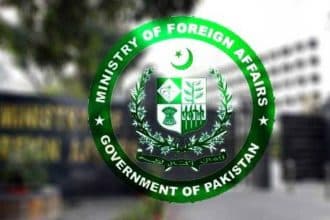Amnesty International released a report exposing Pakistan’s extensive surveillance system. It combines phone tapping and a Chinese-built internet firewall to monitor citizens and censor social media. Described as one of the most comprehensive state surveillance networks outside China, it uses technology from Chinese and Western companies to curb dissent and free speech. This information, according to Reuters, highlights the magnitude of Pakistan’s surveillance efforts.
Pakistan’s Lawful Intercept Management System (LIMS) can monitor at least 4 million mobile phones at once, tapping calls and texts. The WMS 2.0 firewall blocks 2 million internet sessions. This restriction affects platforms like YouTube, Facebook, and X. Amnesty’s technologist Jurre van Berge told Reuters that all major mobile operators are linked to LIMS. This suggests even higher surveillance capacity within Pakistan.
The firewall is supplied by China’s Geedge Networks. It uses equipment from US-based Niagara Networks, software from France’s Thales DIS, and Chinese servers. The phone-tapping system built by Germany’s Utimaco operates through UAE-based Datafusion centres. Niagara and Datafusion claim compliance with regulations, but Amnesty warns of a “chilling effect” on free expression due to the extent of Pakistan surveillance.
Read: PTA Chairman Clarifies Firewall Focus on Gray Traffic, Not VPNs or Social Media
Amnesty based its findings on a 2024 Islamabad High Court case initiated by Bushra Bibi, wife of former PM Imran Khan, after someone leaked her private calls. Authorities deny conducting phone tapping, but the telecom regulator confirmed LIMS operates for ‘designated agencies.’ Amnesty also analysed trade data and Chinese records linking the firewall to Beijing-based firms, highlighting concerns over Pakistan’s surveillance practices
Balochistan faces severe restrictions, with years-long internet blackouts and reported human rights abuses, which authorities deny. Pakistan is currently blocking 650,000 web links, intensifying concerns about censorship under its surveillance regime.
Pakistan’s surveillance systems threaten privacy and free speech, especially for activists. The use of Chinese and Western technology highlights global concerns about surveillance tools. As Professor Ben Wagner noted, this could normalise stricter controls worldwide. Amnesty’s report calls for accountability to protect human rights amidst growing Pakistan surveillance concerns.






